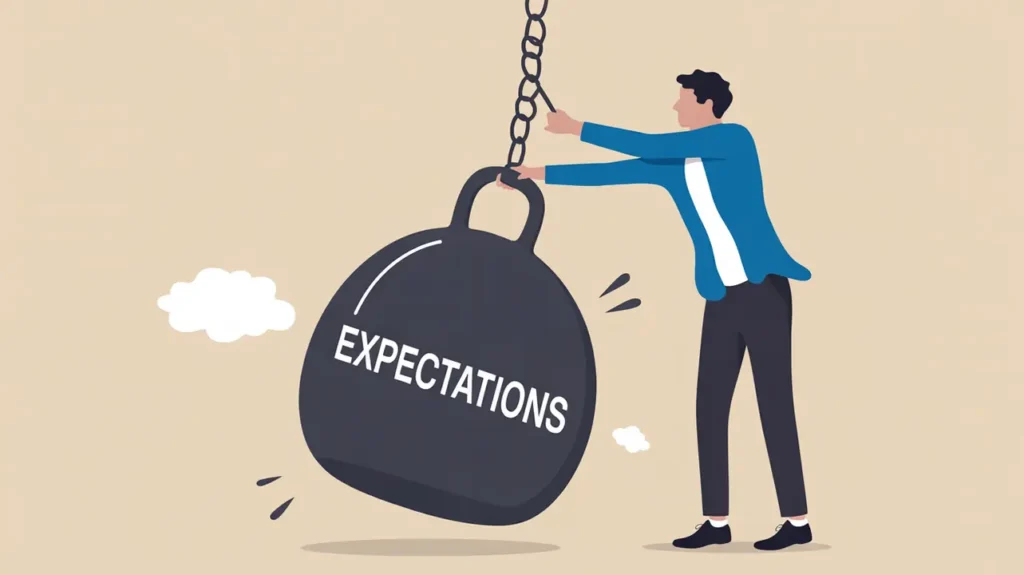Some days are heavy. Some weeks leave you drained. And sometimes, no matter how hard you try, you just don’t feel okay and that’s not a failure. It’s a part of being human. We’re often told to stay strong and keep moving, but pushing through without pausing to process can lead to burnout, anxiety, and disconnection.
Acknowledging when you’re not okay is not a weakness; it’s a form of emotional honesty. When you allow yourself to feel what you’re feeling, without judgment or pressure to fix it right away, you create space for healing. That’s where reflection comes in. It’s a simple but powerful way to check in with yourself, understand your emotions, and reconnect with what matters.
In this article, you’ll learn why making space for reflection matters, how it supports emotional health and resilience, and how to make it a regular part of your day, whether you’re leading others, caring for someone, or just trying to take care of yourself.
Let Go of the Myth That You Always Have to Be Strong

Strength isn’t about pretending everything’s fine. It’s about facing what’s real. We’ve been conditioned to see vulnerability as a weakness, especially in professional or high-performing settings. But there’s power in being honest first with yourself, then with others.
Ignoring hard emotions doesn’t make them disappear. They fester. They show up as anxiety, burnout, disconnection, or even physical symptoms. True strength is found in facing what’s uncomfortable and giving yourself space to process.
What Reflection Really Means
Reflection is more than thinking. It’s pausing with intention. It’s asking:
- What’s really going on with me?
- What am I feeling, and why?
- What’s been building up that I haven’t acknowledged?
Reflection helps you understand your emotional state, recognize your needs, and get clarity about what matters most. It’s not overanalyzing or wallowing; it’s checking in, the same way you’d check a map if you felt lost.
Why You Don’t Need to Be “Fine” All the Time
We often answer “I’m good” out of habit, even when we’re not. But that gap between how we feel and what we say creates disconnection.
- Being Not Okay Doesn’t Mean You’re Broken: Everyone struggles. It’s part of being alive. Owning those moments builds emotional health.
- Bottled Emotions Don’t Stay Quiet: Suppressing how we feel doesn’t eliminate those emotions it just buries them until they resurface with more intensity.
- Slowing Down Isn’t Quitting: Saying “I’m not okay right now” gives you permission to rest, reflect, and recover. That’s not weakness, that’s wisdom.
How to Reflect When You’re Not Okay

You don’t need hours of silence or a perfect journal. You just need small, consistent moments of honesty. Here’s how to build a reflection habit:
Create Quiet Space
Step away from the noise, even if it’s just for five minutes. No screens. No distractions. Ask yourself:
- What’s on my mind right now?
- What feelings am I trying to avoid?
- What needs attention?
Name the Feeling
Put a name to what you’re experiencing:
- I feel anxious.
- I feel drained.
- I feel like I’m falling short.
Naming what’s true can be calming. It lets your brain know there’s no threat in being honest.
Use Simple Prompts
Need help getting started? Try writing or thinking through questions like:
- What’s something I’ve been pretending is fine?
- Where do I feel stuck?
- What lesson might be hiding in this setback?
- What am I avoiding, and why?
Share (If It Feels Right)
Sometimes reflection deepens when spoken aloud. A trusted friend, a mentor, or someone who listens without judgment can help you process. You don’t have to offer a polished explanation. You just need to speak from the heart.
Why Reflection Makes You Stronger in Everyday Life

Reflection isn’t self-indulgent. It builds emotional awareness and equips you to move forward with intention.
- Better Decision-Making: Reflection helps you recognize your patterns, clarify your values, and make thoughtful choices instead of reactive ones.
- More Empathy: When you’ve sat with your own struggles, you show up with more kindness for others. That’s essential in leadership, parenting, relationships, and teamwork.
- Values-Driven Action: Reflection keeps you grounded. It helps you notice when you’re veering off-course and realign with what matters to you.
Common Reasons People Avoid Reflection

We all resist it sometimes. Here’s why and how to shift:
- “I’m Too Busy”: You don’t need an hour. Start with five minutes. Reflection isn’t about time; it’s about attention.
- “I Don’t Want to Feel Worse”: Facing hard feelings can be uncomfortable. But what you ignore tends to grow. What you acknowledge, you can work with.
- “I Should Have Figured This Out By Now”: There’s no deadline for emotional growth. Everyone is working through something. You’re not behind, you’re learning.
Reflection gets easier the more you practice. It’s not about having perfect insight. It’s about showing up.
Reflection as a Shared Practice

Imagine if teams, families, and communities made space for reflection. What would change if it were normal to say:
- “Let’s take a moment before we react.”
- “It’s okay if you’re not at 100% today.”
- “What’s something we’ve been avoiding?”
Making room for real feelings isn’t soft; it’s what helps people stay connected, creative, and grounded.
Final Thought: Your Pause Has Power
You don’t need a big shift or a perfect plan to begin feeling better. What you need is a moment to stop, acknowledge what’s there, and offer yourself the kind of attention you often give others. Reflection is not about overhauling your life; it’s about coming home to yourself a little more each day.
Whether you’re sitting in stillness, jotting down thoughts after a long day, or speaking honestly to someone you trust, these small pauses add up. They help you build self-awareness, stay grounded in your values, and move through hard moments with care.
So if you’re carrying something heavy, let yourself feel it. If you’re unsure, let yourself pause. You don’t need to figure it all out. Just start by being honest. That honesty opens the door to clarity, and eventually, to change.





